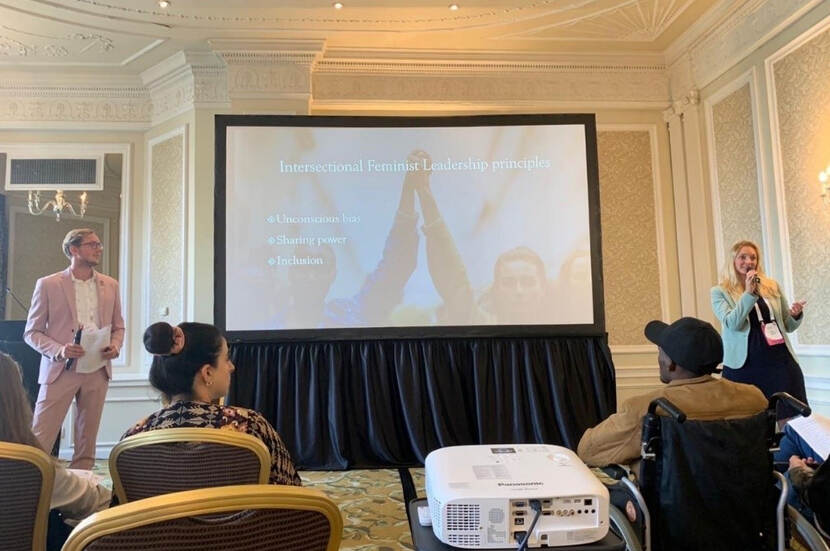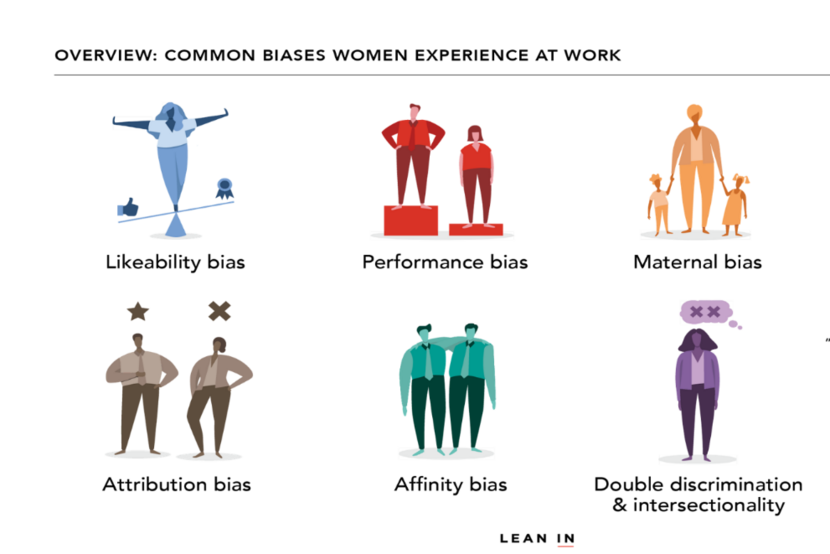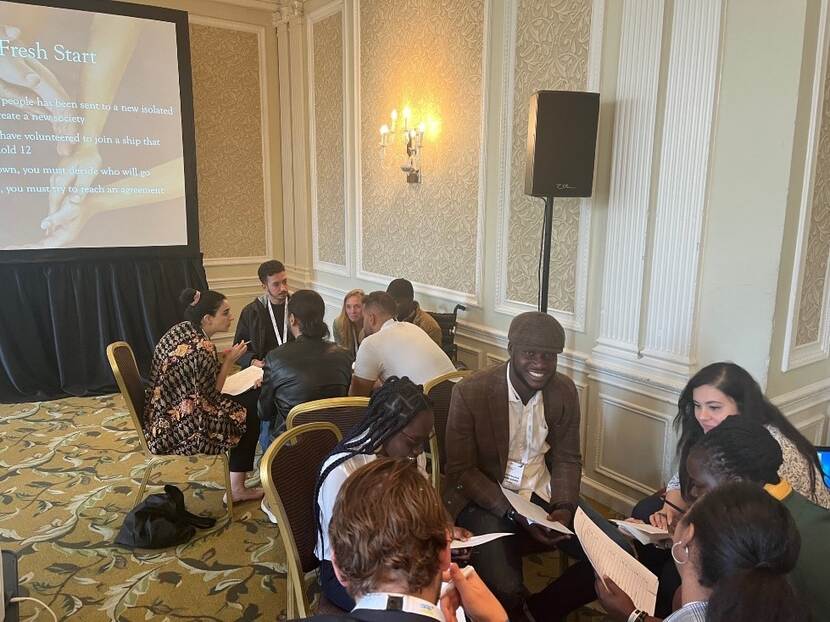What can intersectional feminist leadership do for your business?
At the One Young World Summit 2022 in Manchester, the Enterprise for Peace scholars reflected on the types of leaders we aspire to be during a workshop hosted by Voluntary Service Overseas (VSO) and the Challenge Fund for Youth Employment (CFYE).

How can young entrepreneurs benefit from Intersectional Feminist Leadership?
‘Feminist leadership’ is characterized by ‘power with’ instead of ‘power over’ and cooperation instead of competition, leading to greater creativity and innovation. While ‘intersectionality’ is about not seeing someone as just having one identity (man, or doctor or entrepreneur) but a set of different identities that make up a person (female and young and entrepreneur). Taking this into account leads to better understanding and can allow companies to be more inclusive and to attract and retain a diverse group of talented people.
The business case for intersectional feminist leadership
A diverse team is more likely to come to a diverse set of creative innovations. Or find solutions to problems that an more uniform team might miss. This is not only more conducive to creativity in the work environment, but leads to reduced staff turnover (as research by a.o. McKinsey and Randstad shows) and higher productivity, which can result in an increased revenue.
In the Challenge Fund for Youth Employment, small and medium enterprises from Kenya and Uganda indicated they have been able to increase their revenue due to a group of young people with a broad range of skills, academic backgrounds and ideas.
How can we implement this leadership style?
To ensure that companies actually hire a diverse set of talents, it is essential to develop processes and policies that ensure attracting, selecting and retaining a diverse set of staff members. To set this up, companies can think about things like:
- Where do you advertise your jobs?
- Which criteria do you use to select candidates for an interview?
- How do you ensure that people want to stay on long enough to make a productive contribution to your company?
VSO and the CFYE have developed a journey by working with SMEs in the MENA, Sahel and Horn of Africa regions that assists companies in attracting, selecting and retaining youth in an inclusive and thought-through manner.
This journey enables SMEs to assess and improve the way in which recruitment policies are youth-inclusive, internal professional development opportunities in companies and whether sufficient mentoring and coaching is available. The Enterprise for Peace scholars were able to reflect during the OYW Conference on how they are currently oragnising this within their own companies.

Unconscious bias
During the workshop, we also reflected on unconscious biases. These biases can affect the way we hire, interact with colleagues, and make business decisions. For example, women may face biases like a likeability bias that is favorable to men, or an attribution bias that leads to men being attributed credit for a woman’s ideas (see image 1 above). Another bias that exists is that young people are not experienced enough, or that older candidates for jobs lack the ability to innovate.

As a group, we also did an exercise called ‘Fresh Start’. Participants were given 20 characters and were asked to select 12 of them based on which people they believed most suited to start a new society on a newly discovered island. There was not much information about each character (for example, shop assistant aged 19, or retired sergeant) it was not possible to do the exercise without making a lot of assumptions (often based on biases) about the characters.
This let everyone experience their biases first-hand and we thought about what guided us in our selection process. Together we were able to exchange ideas on this during a very open, personal and interactive session.